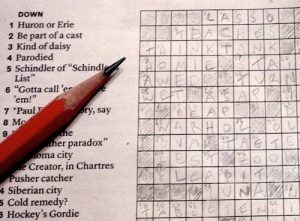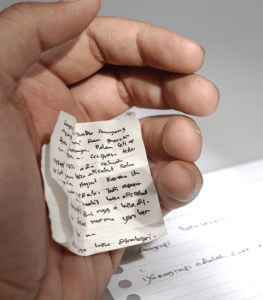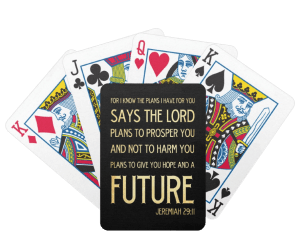I was the “caboose” of my family, the last of seven children, born 20 years after my oldest sister. My five sisters were already teenagers when I was a kid.
 When they went off to college, they left behind stacks of half-done crossword puzzle books. As a third-grader I leafed through the pages, trying to find puzzles at my level. The easy crosswords were usually already filled in. Only the difficult ones were left, and I gazed in awe at one kind of puzzle — the “diagramless” crossword. All you got was an empty grid. No black boxes, no numbers, just definitions. How you could even start?
When they went off to college, they left behind stacks of half-done crossword puzzle books. As a third-grader I leafed through the pages, trying to find puzzles at my level. The easy crosswords were usually already filled in. Only the difficult ones were left, and I gazed in awe at one kind of puzzle — the “diagramless” crossword. All you got was an empty grid. No black boxes, no numbers, just definitions. How you could even start?
The only way I could figure out how to “do” many of these puzzles was to put one finger in the answer key and fill the letters in backwards. My way of “enjoying” the puzzle book was by cheating the whole way through.
You know what? That’s how I was taught to read the Bible. I learned to wedge Jesus into every scene in the Old Testament, no matter whether he fit or not. If you read a murder mystery this way, you’d start by scrawling “butler” at the top of each page.
 The details didn’t mean much unless they revealed coded details about Jesus. When I read about tabernacle, I didn’t care about the tabernacle itself. The only thing that mattered was how it mystically revealed Jesus. The goat-hair coverings, the bread, the laver, the showbread stand—everything was a “foreshadowing” of Christ.
The details didn’t mean much unless they revealed coded details about Jesus. When I read about tabernacle, I didn’t care about the tabernacle itself. The only thing that mattered was how it mystically revealed Jesus. The goat-hair coverings, the bread, the laver, the showbread stand—everything was a “foreshadowing” of Christ.
The lives of biblical characters really only mattered if they were “types” of Christ. Otherwise the Scripture that Jesus read and loved was just a cryptic, dull old history book. Why else should we read it?
Maybe I’m being overly critical. Lots of folks have found this backward style of reading meaningful, just as I was having fun “doing crosswords” by filling answers in from the back. The puzzles that I was trying to solve were beyond me, and this was my approach.
You have to admit, the Bible is a difficult puzzle too. If you’re just starting out, the “backwards” method can keep you going through the boring parts. Considering our ever-shortening attention spans for Bible reading, maybe this is all some of us can do.
Good News to Cheaters
I’ve got good news, though. When I finally grew out of the “finger-in-the-answer-key” approach of artificially reading Jesus into his Bible, I still arrived at the gospel in the end. And it was so much better!
Yes, it required patience. Instead of taking helicopter leaps back and forth to the New Testament, I was joining God’s epic journey beside his people. I needed strong legs, good maps and hiking gear for this winding, back-country hike. Gone was the artificial excitement of secret codes and hidden meanings. Instead I got the thrill of climbing the hills and descending the valleys in the footsteps of God’s people.
 I had to unlearn another favorite cheat — razoring out favorite promise verses to apply to myself, like Jeremiah 29:11:
I had to unlearn another favorite cheat — razoring out favorite promise verses to apply to myself, like Jeremiah 29:11:
“For I know the plans I have for you, plans to prosper you you and not to harm you, plans to give you hope and a future.”
Instead of pulling this verse out as a personal pick-me-up, I imagined what it must have been like for Israelites who heard it from Jeremiah’s lips during the Babylonian exile. Death and horror had consumed the nation, and finally the people had been torn from their beautiful land. All God’s promises seemed utterly undone. After seeing their world collapse, Jeremiah’s words about having “a hope and a future” must have been absolutely breathtaking!
God’s love was revealed on a far grander scale when I appreciated it in its context, rather than plucking out lines to make my own. But doing so required me to empathize with the ancient people who God loved, rather than ignoring them and reading God’s promises as if they only applied to me.
Believe it or not, this longer, slower journey through the Scriptures still leads to Christ, and in far greater ways. Doing the Bible-puzzle this way is infinitely more satisfying, because you discover that Christ really is there all along, in the character of his loving Father. You actually don’t need to cheat to win in the end.
~~~~~
If you’re interested in studying the Scriptures Jesus loved in their original context, I wrote a post called “A Christian’s Favorite Jewish Books on the Bible” that lists some of my favorite commentaries.
Chad says
I hope and pray people are inspired to do exactly what you’re suggesting. The text gets so much deeper with this approach. Thanks for sharing!
Dalyn says
I love learning about the ancient peoples and God’s relationship with them. The Bible seems so much richer when I read it and observe instead of trying to apply it to me- I get sick of myself you know? It’s not all about me thank goodness but when it is I can appreciate it so much more. Thank you for a great article.
Benjamin E says
Dr. Tverberg,
This article is exactly what I needed to hear. I always have had a hard time accepting when people take verses out of the context of the scriptures or they seem to find connections to Jesus with everything, but yet they are still connecting with their God in devotional study of His word. I like how you gently put that this “eluding” or “cheating”of God’s full story is still beneficial, yet there is so much more in knowing the complete story. Great article, and I appreciate the thought.
Levi says
Great post. I love the idea that instead of taking a verse out of context, really look for the deeper meaning. RVL challenges us to read the Bible from an eastern perspective; reading the Torah in their own shoes. I think that I completely agree with that we will have such a greater, fuller understanding of the word if we take it in it’s context and look at it together. That being said, I think what makes Christianity and following Jesus so special is that we get to make the Faith our own, and I think interpreting the word in our own individual way can do a lot. Thank you for a great article.